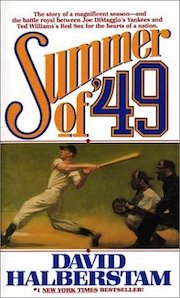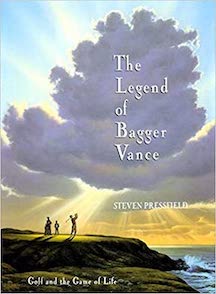- Messages
- 17,483
- Location
- New York City
A '49 version? Spill the beans about it....waita sec...was Alan Ladd in this????
You are spot on re Ladd. I've never seen it, but here are the details:
https://www.imdb.com/title/tt0041428/?ref_=fn_al_tt_4
A '49 version? Spill the beans about it....waita sec...was Alan Ladd in this????
A.O. Abbott, Rank Analysis Handicapping; How to Bet Thoroughbred Races Instead of Horses
Abbott brings an engineer's approach to the profession of analyzing percentage and placement
within exacta and trifecta wagers and further application to more exotic play.
I once overlooked a clerical error on an exacta ticket five minutes before the race posted,
the horses being led to the gate as I caught it-which was my mistake in not catching the ticket
when issued at the window an hour earlier. Lana, a lovely woman with a chunk of ice on the third finger,
left hand, was my favorite teller so I rushed back to her, cancelled and corrected, and we shared the
profit from an $80.00 winning ticket, passing her a $50 bill. Somebody should write a book on proper
focus at the betting window and not indulging eye candy distraction.
The relationships you develop with some of the tellers at the track can be a lot of fun and, as in all relationships, have their enjoyable nuances and protocols. I've waited in a longer line quite often just to get to "my" teller. That's another personal connect that is being lost to technology with the "betting machines."
I've waited in a longer line quite often just to get to "my" teller.

 John Lofgren Monkey Boots Shinki Horsebuttt - $1,136 The classic monkey boot silhouette in an incredibly rich Shinki russet horse leather.
John Lofgren Monkey Boots Shinki Horsebuttt - $1,136 The classic monkey boot silhouette in an incredibly rich Shinki russet horse leather.  Grant Stone Diesel Boot Dark Olive Chromexcel - $395 Goodyear welted, Horween Chromexcel, classic good looks.
Grant Stone Diesel Boot Dark Olive Chromexcel - $395 Goodyear welted, Horween Chromexcel, classic good looks.  Schott 568 Vandals Jacket - $1,250 The classic Perfecto motorcycle jacket, in a very special limited-edition Schott double rider style.
Schott 568 Vandals Jacket - $1,250 The classic Perfecto motorcycle jacket, in a very special limited-edition Schott double rider style. I just prefer knowledge over belief.
I’ve read that twice now, it’s great, like a horror movie but it was real.I started Defoe's A Journal of The Plague Year yesterday morning while aboard the Chicago bound train.
Half asleep, this Norton Critical edition awoke me by its rich abundance which includes critical reviews;
among these is a piece penned by Sir Walter Scott and an essay on the Athenian Plague (427BC) by
Thucydides. A marvelous book, A Journal of The Plague Year is a fictional account of 17th Century London's
grapple with pestilence and mortality, with lessons no doubt for the present moment.

I’ve read that twice now, it’s great, like a horror movie but it was real.
“Passing through Tokenhouse Yard, in Lothbury, of a sudden a casement violently opened just over my head, and a woman gave three frightful screeches, and then cried, ‘Oh! death, death, death!’ in a most inimitable tone, and which struck me with horror and a chillness in my very blood.”
I must read more Defoe, I bought Moll Flanders a while ago but haven’t gotten around to it yet.
I've never been a fan of post modernism and deconstructionism and the like, it's too sterile and lifeless. I do like the novels of Thomas Pynchon however, they have a bit of heart. He's very much a post modernist, in his novel 'V' the characters are on a train, when it turns out a fellow passenger is a robot, am automaton with gears for a brain. It's only mentioned briefly, the character doesn't appear in the rest of the novel, and it's the only sci-fi element!I have the Norton Critical edition of A Journal of The Plague Year which is fabulous; howsoevahr, the
edition-as per Academe asinine-contains a piece by Foucault; whom I absolutely cannot stand, despise,
and would dearly have loved to debate, all irrelevant, and only included out of some f.....g noblesse oblige
horsehit, commonly found on campus and permeates university press lit no f.....g end. All that pious
half assed sociological disguised philosphical half assed crap that just had to be included in Norton's critical.
Norton features an excellent critical analysis of Defoe penned by Walter Scott. Amazing.